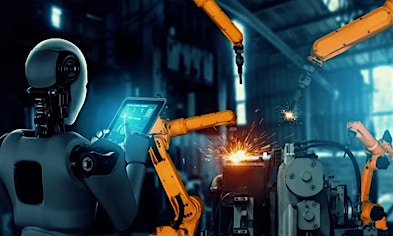Introduction
In the era of connected cars, self-driving vehicles and personalized customer experiences, data is the fuel that powers innovation, unlocks hidden efficiencies and shapes the future of mobility. Yet, for many automotive manufacturing companies, it remains trapped in isolated silos, hindering progress and stifling innovation. Many legacy manufacturing companies that have grown inorganically through acquisitions have ended up with multiple IT core systems and siloes of data. Standardization and commoditization of IT tools and systems is often a complex, time-intensive exercise and is not often prioritized during IT budgeting.
“Data in siloes throttles growth across production lines to boardrooms”
Data silos are isolated pockets of information within disparate departments and systems, each with its own format, structure and access controls. With siloed data, teams struggle to effectively and efficiently accomplish their goals. Engineering teams are entrusted with reducing product cost, scrambling to utilize data across multiple ERP and procurement systems and running their analytics in spreadsheets, only to end up with sub-optimal solutions. Sales and marketing teams who compete in large fleet deals struggle to find relevant data to understand the customer lifetime value for a given product and applications mix, resulting in lost or unprofitable deals.
The consequences of data silos are stark: wasted resources, delayed decision-making and sub-optimal results. As a result, CIOs are ready to tackle the challenge and plan for the future. According to PWC research, modernizing data, eliminating data silos and preparing the enterprise for GenAI and AI is a top priority for manufacturing CIOs in 2024.
Case in point
A leading American industrial manufacturing company struggled with fragmented data across its multiple strategic business units’ IT systems in manufacturing, sales and customer service. This lack of integration resulted in inaccurate sales and inventory forecasts, pricing and margin losses and a deterioration of the customer experience.
While platform standardization across divisions might seem like the ideal solution, it can be a long and arduous journey. A powerful interim solution like Snowflake offers a bridge connecting siloed islands without forcing immediate platform standardization. Snowflake is a cloud-based data lake/house that lets you store, manipulate and analyze diverse data in a single location. It scales effortlessly, adapts to changing needs and provides instant access for authorized users.
HCLTech bridged these gaps, delivered an interim solution and achieved real-world success. For the leading American industrial manufacturing company, we leveraged Snowflake to unify data from R&D, manufacturing, sales, supply chain and financial systems to enhance sales and inventory forecasting, improve pricing margins and reduce reporting time.
While interim solutions like Snowflake, Denodo and others offer an immediate way to break down silos, in our opinion, they are only stepping stones — not the final destination. Platform standardization has other strategic benefits, such as reducing complexity and cost and improving efficiency.
Planning for the future
The ultimate goal for every manufacturing CIO is a well-defined data strategy with a standardized platform for long-term governance and security. Data strategy is also important for developing an enterprise AI strategy. Gartner predicts that by 2026, AI will be used routinely by up to 5% of employees, even without an employer's explicit approval.
Breaking down siloes enables enterprises to develop, deploy and adopt data analytics solutions quicker, leading to faster realization of business benefits. Eliminating data silos also helps enterprise users with AI tools inside IT-governed enterprise apps and will discourage any improper usage and subsequent damages.
Are you ready to break down your data silos and accelerate your digital transformation journey? Contact HCLTech today, and let us start reimagining your road ahead. Refer to our case studies
References
- https://www.manufacturingtomorrow.com/story/2023/04/the-top-5-things-every-manufacturing-cio-should-know/20424/
- https://cionews.co.in/top-priorities-for-cios-in-2024/#:~:text=CIOs%20need%20to%20drive%20a,AI%20will%20mean%20for%20them
- https://www.pwc.com/us/en/executive-leadership-hub/cio.html
- https://www.snowflake.com/wp-content/uploads/2023/12/Manufacturing-Data-AI-Predictions-2024.pdf?utm_cta=website-industry-mfg-timely-content-predictions-ebook
- https://www.bcg.com/publications/2023/gen-ai-role-in-factory-of-future
- https://cxotoday.com/cxo-bytes/gartner-the-impact-of-generative-ai-on-digital-workplace/#:~:text=In%20fact%2C%20Gartner%20predicts%20that,five%20per%20cent%20in%202023





